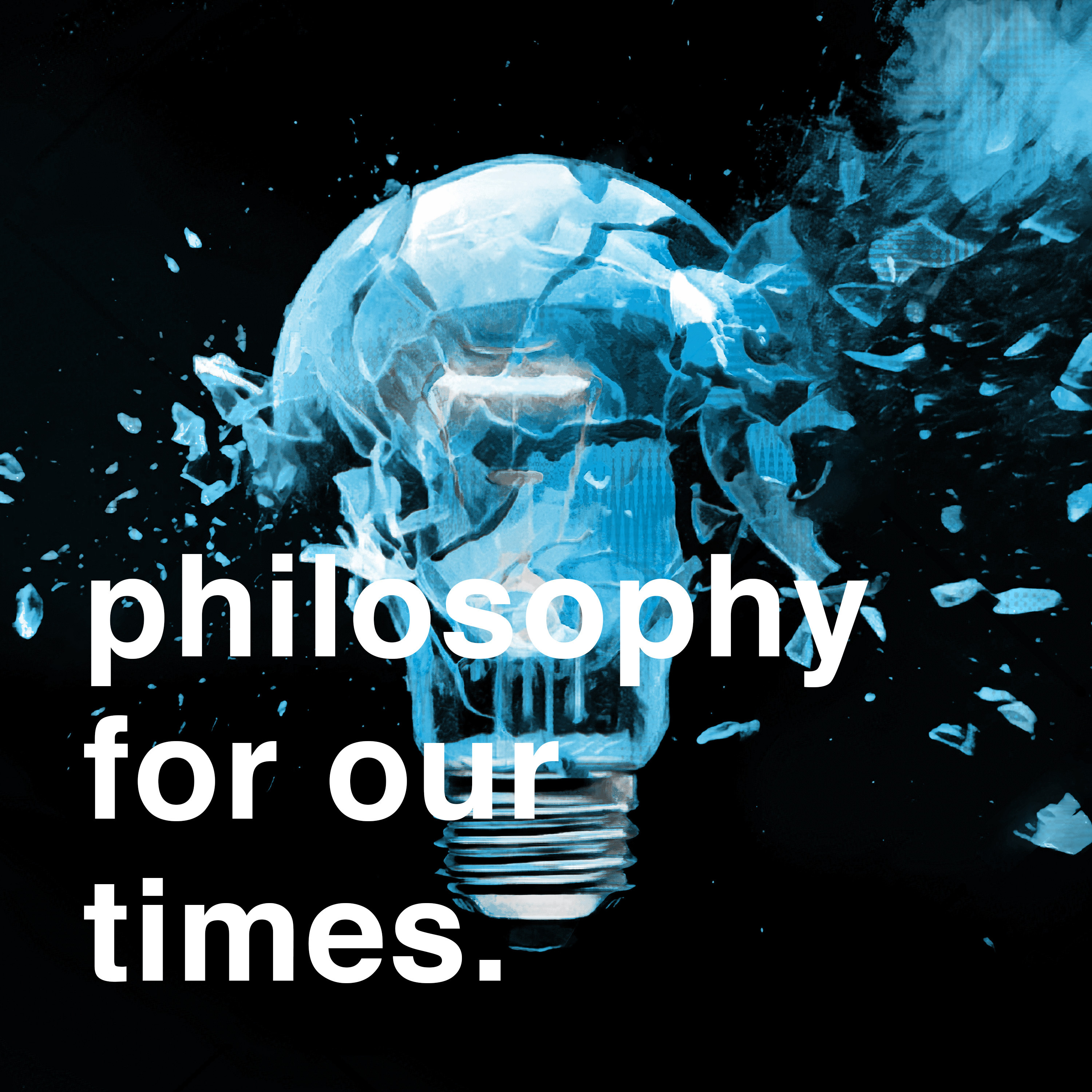

Philosophy For Our Times
IAI
Philosophy for our Times is a free philosophy podcast bringing you the latest talks and debates from the world’s leading thinkers. We host weekly episodes on today’s biggest ideas in news, society, culture, politics, science and arts. Subscribe today to never miss an episode.
Episodes
Mentioned books

Jan 27, 2026 • 53min
Freedom and Fate
Lucy Allais, philosopher of agency and Kantian themes; Robert Sapolsky, neuroscientist and determinism advocate; Paul Bloom, psychologist studying morality and cognition. They debate whether freedom can fit with scientific materialism. They contrast hard determinism, higher-level agency, and psychological compatibilism. They also discuss blame, punishment, and how agency looks in edge cases like addiction.

30 snips
Jan 13, 2026 • 38min
The search for higher states of consciousness | Philosopher Jessica Frazier
In this engaging discussion, Jessica Frazier, a theology and religion lecturer at Oxford specializing in Indian philosophy, dives into the quest for higher states of consciousness. She opens up about childhood curiosities that sparked her philosophical journey. Key topics include contrasting views of the self—from Buddhist to Cartesian—and the ways imagination and meditation can help transcend modern alienation. With insights on various 'higher selves,' Frazier invites listeners to explore deeper layers of existence, emphasizing creativity and presence as pathways to fulfillment.

15 snips
Jan 6, 2026 • 48min
Should we be transgressive? The limits and potential of transgressiveness | Catherine Liu, Rowan Williams, Josh Cohen
In this thought-provoking discussion, guests include Rowan Williams, a former Archbishop of Canterbury and theologian; Josh Cohen, a literary theory professor and psychoanalyst; and Catherine Liu, a cultural theorist and film studies professor. They explore transgression's dual nature—its potential for creativity versus its risks of totalizing chaos. Liu critiques the fetishization of norm-breaking, while Williams emphasizes context and moral development. Cohen warns against oversimplifying transgression, linking it to guilt and political backlash, urging a thoughtful approach to societal change.

6 snips
Dec 30, 2025 • 23min
Perversity and the limits of rational | Psychologist Paul Bloom
In this engaging discussion, psychologist Paul Bloom, known for his insights on morality and empathy, explores the interplay between rationality and perversity. He defines perversity using Augustine's pear theft, illustrating acts motivated by the thrill of wrongdoing. Bloom argues that while rationality fosters better moral decisions, a hint of perversity can spark creativity and interest in relationships. He also discusses the strategic value of irrationality in politics and promotes the idea of challenging one's reasoning through public debate for greater authenticity.

19 snips
Dec 16, 2025 • 36min
Why liberalism has failed | John Gray on civilisation, morality, and the illusion of progress
John Gray, a political philosopher and author known for his critiques of liberalism, shares thought-provoking insights on the failures of liberalism and the myth of progress. He argues that scientific advancements don’t equate to moral improvements and reflects on how urban renewal can undermine social cohesion. Gray delves into the rise of populism as a response to liberal policies and examines the dangers of polarization in the US. Ultimately, he advocates for living with hope rather than blind optimism, urging individuals to find meaning without relying on societal perfection.

23 snips
Dec 9, 2025 • 49min
Analytic or Continental philosophy | Christoph Schuringa, Genia Schönbaumsfeld, Babette Babich
Join Christoph Schuringa, an expert on Hegel and analytic philosophy's self-image, Genia Schönbaumsfeld, a Wittgenstein scholar exploring the crossroads of analytic and continental thought, and Babette Babich, who delves into aesthetics and the philosophy of science. They tackle the relevance of the analytic-continental divide, discussing whether it's an outdated schism or a necessary distinction. The group debates the influences of post-structuralism, the role of English dominance in philosophy, and the need for public engagement and methodological self-reflection within both traditions.

11 snips
Dec 4, 2025 • 33min
How Words Warp Reality | Nick Enfield
Nick Enfield, Professor of Linguistics and author of Language vs. Reality, delves into how language molds our perceptions of reality. He explains the distinction between social and brute realities, highlighting how words can blur definitions and shift blame. Enfield discusses framing effects in media and everyday interactions, revealing how subtle language choices can influence decisions. He emphasizes the power of mindful language, particularly in legal contexts, demonstrating its profound impact on memory and perception.

10 snips
Nov 28, 2025 • 32min
Consciousness and psychedelics: In conversation with Rupert Sheldrake
Rupert Sheldrake, a biologist renowned for his unconventional theories on consciousness and morphic resonance, joins philosopher Peter Sjöstedt-Hughes to explore the intriguing relationship between consciousness and psychedelics. They discuss ancient views of a conscious cosmos, Sheldrake's fascinating ideas on panpsychism, and the cultural significance of psychedelics in expanding awareness. Their conversation delves into personal experiences with substances like 5-MeO, the intersection of mystical traditions, and the resurgence of psychedelics in modern society.

20 snips
Nov 25, 2025 • 26min
The philosophy of religion and love with Alain de Botton and Alex O'Connor
Why we worship without knowing itWhat should be included within the remit of philosophy? Religion? Love? Hair? Join well-known public speakers and writers Alain de Botton and Alex O'Connor as they talk through what philosophy can offer us, why we should study love, and what the role of religion is in philosophy and in our lives. See Privacy Policy at https://art19.com/privacy and California Privacy Notice at https://art19.com/privacy#do-not-sell-my-info.

35 snips
Nov 12, 2025 • 48min
Mazes of the mind: The philosophy of neuroscience | Iain McGilchrist, Colin Blakemore, Bryan Appleyard
Colin Blakemore, a renowned neuroscientist, shares insights on brain development and the progressive nature of neuroscience. Iain McGilchrist, a psychiatrist and philosopher, critically explores the limitations of neuroscience in explaining consciousness. Bryan Appleyard, a journalist, highlights concerns about neurohype and the gap between brain data and subjective experience. Together, they debate neuroscience's role in understanding human behavior, the nature of free will, and whether complete brain imaging could ever encapsulate the richness of mental life.


